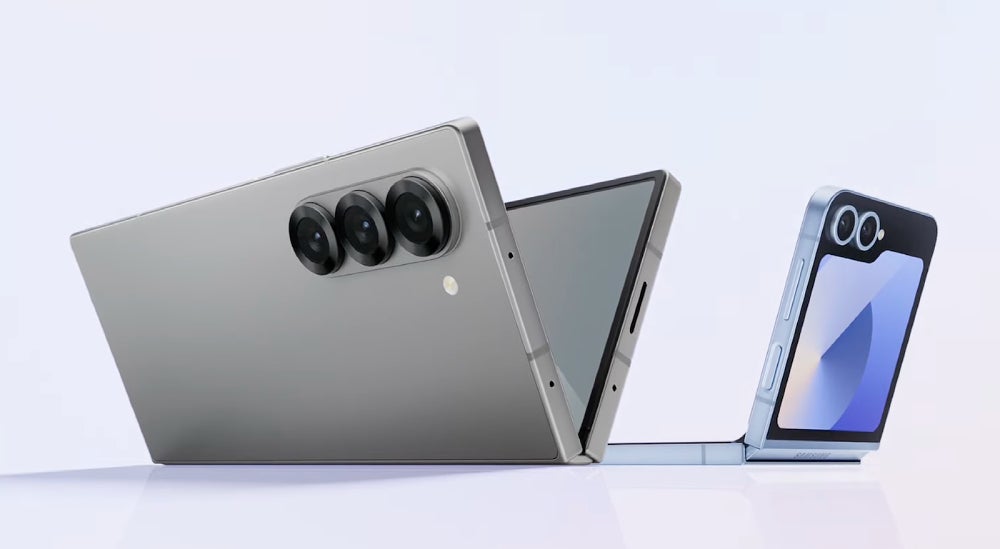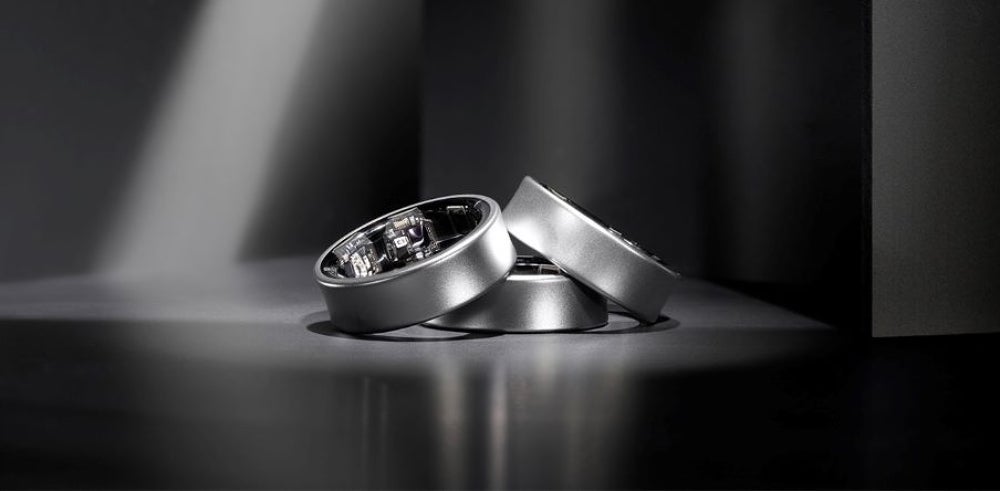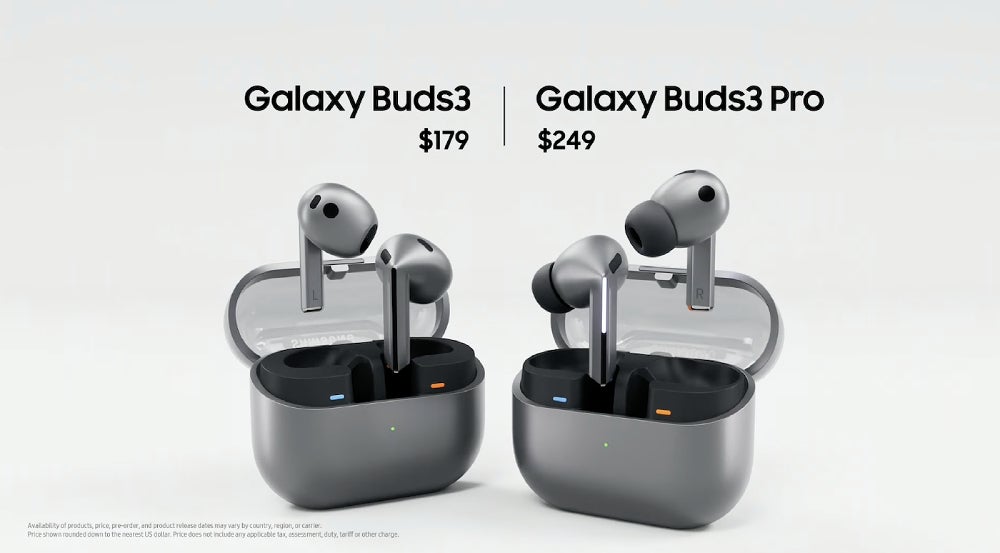After first announcing onboard AI in January, Samsung expanded what it’s calling the Galaxy AI ecosystem on July 10 at the Galaxy Unpacked event in Paris. The company announced its next two foldable phones, plus new earbuds and wearables.
All of the products shown off at Samsung Galaxy Unpacked are available for preorder now and will come out on July 24 internationally.
Samsung offers seven generations of OS updates and seven years of security updates, similar to Apple’s security and OS lifetimes.
Samsung introduces new Galaxy Z Fold and Flip phones

Samsung’s two newest phones are the Galaxy Z Fold6 and Galaxy Z Flip6, both of which use Google’s Gemini AI for translation, creative features and cosmetic changes.
Galaxy Z Fold6
The 7.6-inch Galaxy Z Fold6 is “our slimmest and lightest foldable,” said Annika Bizon, director of brand and channel marketing at Samsung Electronics UK and Ireland, at Galaxy Unpacked.
The large, two column display of the Galaxy Z Fold6 opens side to side, with thinner edges and increased durability compared to the previous generation. Galaxy AI appears here in the form of Google’s Circle to Search, which lets you circle items to shop or to identify natural features like constellations. Google Circle to Search on Samsung phones will be able to translate menus and signs with full screen translation and solve math problems while showing its work. Galaxy AI is multimodal, which means you can speak, write or gesture to focus the AI’s attention.
“On Galaxy phones, you can just say ‘hey Google’ to pop Gemini onto your screen for quick help,” said Jenny Blackburn, vice president of Gemini user experience at Google, at the Galaxy Unpacked presentation.
“The large, immersive screen is perfect for multitasking, so you can watch a video in full screen, and soon you’ll be able to move the Gemini overlay to a side panel so it can help you with what you’re doing,” said Blackburn.
Especially interesting for business is the ability to record, transcribe and export audio with AI in Samsung Notes, which could save a lot of time during meetings or interviews.
For creative work and marketing, Galaxy AI enables Sketch to Image, a way to prompt Gemini to generate images based on a drawing you’ve made. You can sketch on photos, too, and then make photorealistic changes to them with AI. Galaxy AI will suggest how to reimagine images.
Inside Galaxy Z Fold6 is the Snapdragon 8 Gen 3 Mobile Platform. Galaxy Z Fold6 holds between 256 GB and 1 TB of internal storage, depending on the model.
Galaxy Z Flip6
Samsung’s new vertical foldable, the Galaxy Z Flip6, also comes with a suite of AI tools powered by Google Gemini and the ProVisual photo editing engine. The 3.4-inch front window allows you to use many features, including Samsung Health and Wallet, on the front for quick interactions without opening the phone. The main screen is 6.7 inches. Inside, you’ll find the Snapdragon 8 Gen 3 Mobile Platform for Galaxy. Galaxy Z Flip6 comes with either 256 GB or 512 GB of internal storage.
Samsung highlighted photo editing tools that can automatically zoom, depending on the number of people in view, or generate extra frames to create slow motion videos.
The large vapor chamber, used for the first time on a phone in the Flip line, improves battery life through more efficient cooling. Addressing concerns about the strength of the hinge, Chosen says the Galaxy Z Flip6 has improved durability.
How Google’s AI is integrated into Samsung’s sixth generation phones
Galaxy AI will be on 200 million Galaxy devices this year, said T. M. Roh, president of Samsung’s mobile division. Galaxy AI can support 16 languages on-device even without an internet connection.
The goal is “safe and inclusive AI so that no one is left out,” said Roh, with “a hybrid approach that combines on-device security and privacy with cloud based creative power.” Like Apple Intelligence, Google AI on Samsung devices will connect to the cloud for certain needs and resources.
For security, the AI-powered Live Translate and Interpreter features are handled on the device.
SEE: Google’s energy-hungry AI efforts have put a damper on the tech giant’s sustainability claims.
The Galaxy Watch Ultra and Galaxy Watch 7 are on the go

The debut of the Galaxy Watch Ultra brings a high-end wearable for ‘adventure,’ with water resistance and a durable frame for outdoor buffs and athletes. It boasts up to 100 hours of battery life in power saving mode, a titanium frame, water resistance and performance three times faster than the previous watch’s CPU. The main draws of the Ultra are the battery life, a precision GPS system and in-depth health monitoring that connects to the Samsung Health app.
Samsung Watch Ultra is powered by WearOS 5 in partnership with Google. It retails for $649.
Galaxy Watch 7 is the more mainstream watch, with some Samsung Health app features included and a range of models starting at $299. The health widgets include sleep tracking, heart rate monitoring and FDA-authorized sleep apnea detection.
Galaxy Ring revealed

Speaking of health, the Galaxy Ring seems designed to provide as much guidance about a healthy lifestyle as one could want. The Ring syncs to the Samsung Health app and is designed to be worn day and night to track sleep and energy.
Galaxy AI offers insights based on health tracking, too. Sleep tracking produces an “energy score” calculated from your sleep, heart rate and heart rate variability. Using that score, your devices can suggest when you’re fully rested or when you should “take it easy” or “relax,” depending on your condition.
The Ring battery lasts up to 7 days on a single charge. The Galaxy Ring costs $399.99 and does not require a subscription.
Galaxy Buds3 and Galaxy Buds3 Pro bring a familiar shape and ‘smart’ noise cancellation

Samsung’s next high-end earbuds are the Galaxy Buds3 Pro, which were announced today alongside the next-generation Galaxy Buds3. The bladed lights on the Galaxy Buds3 Pro add a futuristic flair, while the elongated shape recalls Apple’s rival AirPods.
“Dynamically adjust the sound curve and active noise cancellation” for an ‘“intelligent’ sound experience,” said Malika Chraibi, project manager for wearables at Samsung Electronics France. For example, the Galaxy Buds3 Pro could provide effective, smart noise cancellation for crowded offices, especially if that ‘intelligence’ works as well as advertised. Chraibi said the buds can filter out loud road construction but will let the sound of an ambulance siren through, for example.
The basic Buds3 have some of the same noise cancellation features as the Pro version, but without the cap at the top, some of the ‘smart’ features won’t kick in.
The Galaxy Buds 3 cost $179, while the Galaxy Buds3 Pro sells for $249.
On the eve of the Paris Olympics, Samsung leans into health and exercise features
The Parisian styling on the Galaxy Unpacked summer event lent itself to a tie-in with the Summer Games, and Samsung emphasized how its devices can keep track of health and wellness. If you’re into that, the interplay between the wearables and the phones could provide an easy way to check in on your health and energy at work conferences, on long work days or when traveling to meet with clients.
With AI, health data from your Samsung devices can be combined into ‘data graphs’ that make recommendations and alert you to possible problems.If you have a low energy score on your data graph, your phone can suggest skipping “your 7 AM spin class,” said Bizon.
Samsung’s efforts here are strikingly similar to those of their major competitor in this area, the Apple Watch and Apple health data ecosystem.
TechRepublic is covering Samsung Galaxy Unpacked 2024 remotely.

